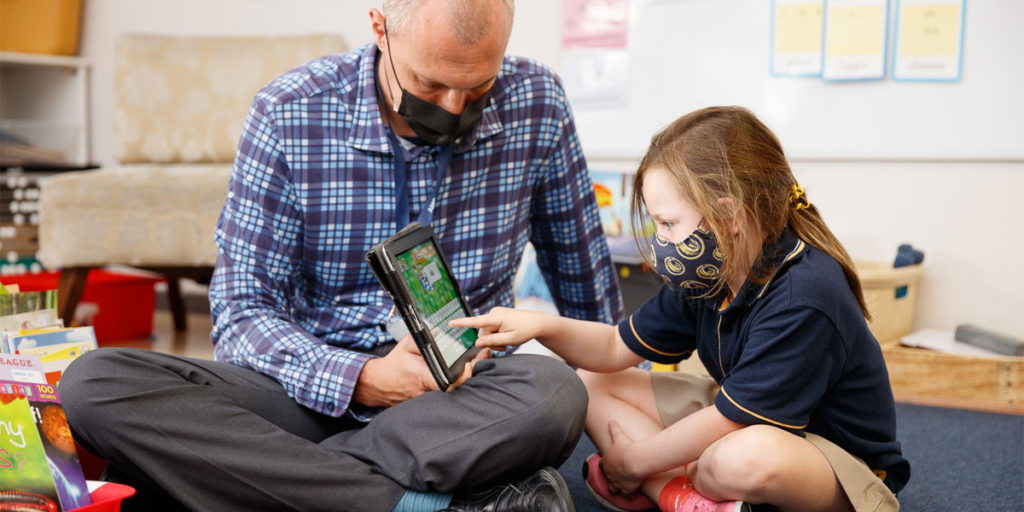At the American International School of Cape Town (AISCT) we believe that a passionate, caring, patient, supportive, experienced educator is the greatest external factor that makes learning possible.
The faculty at AISCT form a diverse group, coming from over 15 different countries. Most join AISCT with previous international teaching experience and they understand what working at an international school and delivering international education requires.

Key skills for successful teaching
The elements that go into delivering a strong lesson are plentiful. Time is taken to prepare the lesson, with an understanding of the individual needs and levels of the children in the class. There is the expectation that the learning will need to be adapted and redirected, as the students’ interests and questions lead to new discoveries. Relevant examples in real-life are found, examples that relate to each child, in our diverse classrooms. Then there is the art of facilitating the students in the room, with the expectation for them to collaborate and work together. For those for whom this is difficult, they provide support and scaffolding. Successful teaching will deliver the curriculum and lessons in a way that inspires, energizes, and evokes a sense of curiosity in each student so that they not only understand what they are learning but can apply it in different settings.
Bringing all these elements together takes knowledge, experience, and the development and refinement of key skills.
The AISCT Director of Teaching, Learning, and Innovation, Jodi Lake, outlined 5 key skills that she feels make teachers great in an international setting:
- The ability to build strong relationships with students. Students need to feel safe and feel that they belong. This begins with getting to know each student individually.
- The ability to adapt the learning based on the needs of the students. Every student can learn but maybe not in the same way or on the same day. Teachers need to be able to personalize the learning so that each student can be successful.
- The ability to collaborate with their colleagues to align teaching and learning. Teachers clearly plan units of learning which are aligned to the school’s standards in collaboration with others. This allows teachers to set clear expectations for students so they can be successful.
- The ability to communicate clearly both verbally and in writing. Strong communication means that teachers make their lesson material and expectations clear and present concepts in a way that students can understand. Written feedback also needs to be clear and demonstrate how well teachers understand the students and their learning.
- The ability to facilitate student agency so that students feel at the center of their own learning. Student voice is equally important for our youngest learners as well as our oldest.
These are some of the skills we look for in our teachers. Our faculty are skilled in working within an international setting with students from diverse backgrounds and in the delivery of the AISCT curriculum.
Their work is supported by having smaller class sizes, allowing for more individual attention for students, and through our learning support program.

Continuous Development
The learning of a teacher is also ongoing. Our faculty follow the latest research and best practices in education, as well as the latest tools to support learning. The aim of our professional development program at AISCT is to maintain a healthy Professional Development budget from which teachers apply to access these funds for further development. In addition, this budget also supports our support staff, so they are empowered to continue to develop their skills as well.
We are grateful for the ongoing work of our highly professional, caring, and experienced faculty.
Interested to learn more about our faculty? Browse our staff directory.











